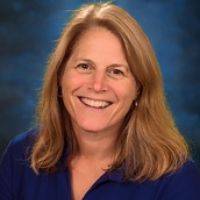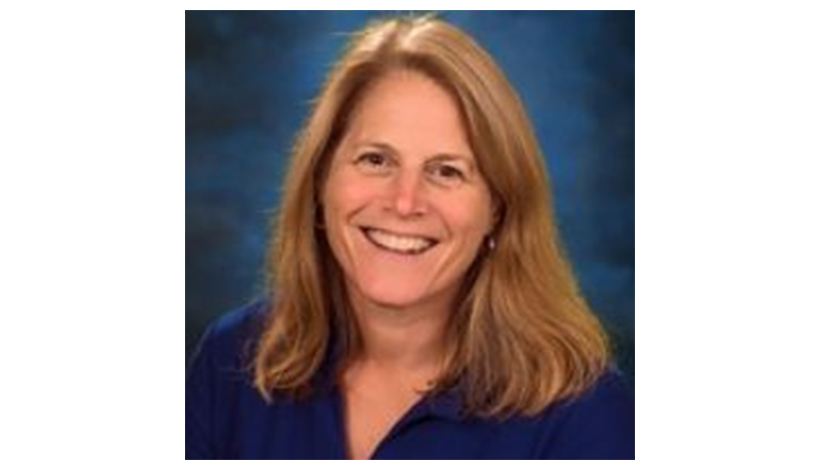By Lindley Schutz, Dean of Academic Program, The Derryfield School (NH)
While the rapidity and extremity of COVID have been a shock to our system, when I look back on this time, I also will be grateful. First, I am grateful that our school is blessed with teachers already versed in change — we were in the midst of an academic year of remarkable innovation — and so they have responded nimbly with grace and ingenuity and deep empathy and care for our students.
Second, COVID has provided a sense of authentic urgency that has given our innovations an additional, immediate purpose.
Why were our teachers so familiar with change?
A decade ago, the Derryfield School, a grades 6-12 college preparatory school in Manchester, NH, emerged from our NEASC experience with a glowing report; we were confident about our strengths and identity and clear about areas for growth. Building on that momentum, our 50th anniversary, celebrated in 2015, reconnected us with our founders’ vision and the experiences of our alumni.
At that point, our Head of School charged us with the question: How can we retain the best of who we are, and make the changes needed to best prepare our students for the rapidly changing, 21st century?
With this charge, we created a three-year framework for change. The first year was the Year of Inquiry. A young school, we were open to growth. Curiosity shaped that year as we shared a school-wide read on 21st-century skills. Teacher cohorts participated in and presented at OESIS, Learning and the Brain, gcLi, and other professional development resources selected by faculty. We visited colleagues at other schools and visited alumni in their workplaces.
Our Dean of Innovation launched a micro-grant program in which a cohort of teachers developed design-thinking projects for their classrooms and committed to sharing the outcome publically at conferences. Our Upper School built upon the Middle School Learner’s Portrait to develop the Derryfield Portrait of a 21st Century Learner which identified the cross-disciplinary skills critical to grades 6-12.
During the second year, the Year of the Program, we worked with our faculty, parents, and students to develop our Academic Vision. The vision integrated the priorities that emerged from our Year of Inquiry, the skills, and pedagogies that have served us well in this transition to remote learning. We reinterpreted our core value of the character to guide us: How can we cultivate ethical, community-oriented leaders versed in innovative, real-world problem-solving?
We moved away from AP courses in favor of Advanced Topic courses, such as Investment Math; Biotechnology, Immunology, and Microbiology; and the Literature and History of Consumer Culture, anchored in student-driven inquiry and project-based learning. Our departments began to map a sequence of Problem Solving and 21st Century Communications strands. We committed to social-emotional learning, designing a program called LEAD, (Leadership, Ethics, and Development) for 6-12, and we continued to cultivate teachers excited to offer courses for the Malone School Online Network.
During the third year, the Year of Schedule, our faculty, students, and parents’ community, designed the schedule that would allow us “to live what we valued.” That was a year of compromise, as we expanded time—for student-centered learning; collaboration; our new LEAD, Computer Science, and visual communication courses — and relinquished time for classes and other valuable experiences. It also was a time of tension: we decided that rather than pace the changes, we would implement all at once. Our families did not want to wait.
We would launch all of our new programs and our new schedule in the same year that we were building the new facilities in which to teach them: a new Athletic and Wellness Center and a Science and Innovation Center. We ended the year with three days of school-wide professional development in project-based learning.
Over the summer, each teacher drew upon Understanding by Design to reframe their courses for the new schedule. Our teachers began this 2019-20 academic year with exhilaration, trepidation, and, what I can only call, courage.
This year, aptly named the Year of Implementation and Practice, already has been a year of hyper change. Our faculty created over 70 new courses; in addition to the new Advanced Topic courses and our new LEAD program, they also created Exploration courses, where students and faculty share passion pursuits of beekeeping, gaming, digital marketing, and more. In preparation for the new schedule, they culled to essentials and pivoted toward student-driven learning.
So, now in May 2020, with COVID upon us and the aftershocks of the transition to remote learning fully at play, why am I grateful?
Fortunately, anticipating the need to prepare our students for a century of rapid change, innovation and adaptability, problem-solving, and resilience, we prepared ourselves. With curiosity, humility, and courage, our nimble faculty and resilient community can go the next step, expanding the possibilities of meaningful teaching and learning, even as we live it.
This article was written by Lindley Schutz

Lindley Shutz is the Dean of Academic Program at the Derryfield School, where she has taught English classes in grades 9-12, chaired the English Department, and as Curriculum Director, partnered with Middle School teachers to enhance the academic program. Her current joys are teaching online with the Malone School Online Network, working with Derryfield students to host an annual statewide Equity Conference, and partnering with the Derryfield College Counselors to teach college essay writing in Derryfield’s new Leaders, Ethics and Development (LEAD) program.


